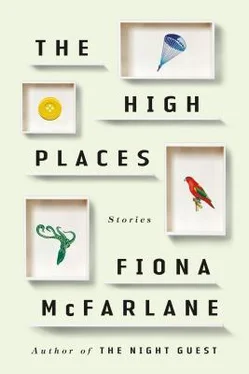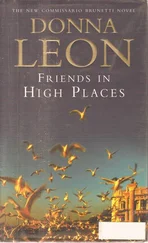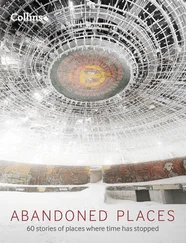Christopher spent a minute or two confused himself, and unable to concentrate, before calming down enough to remind himself that he owed nothing to Mr Kidd, whom he now connected with the cough in the next-door room, and that his aim in this city was to lead a simple life of research, seven days a week, until he could return home with new material and nothing else to report. Settled by these thoughts, he returned to reading.
But the article on Christopher’s lap spoke with intelligent fury of the violence toward women represented by the obstetrical models that were, as he described them, his ‘intellectual bread and butter’; he grew ashamed and embarrassed in the lounge of the St George. From a distance — the distance of a few chairs away, by the tea and coffee table, where men continued to sweeten their cups with irregularly shaped lumps of sugar — he was sure the images accompanying his article must look obscene. He had become a man reading pornography in a hotel lounge. How long did it take to clean a room? Should he finish his tea, cold by now, before leaving the lounge, and where would he put his cup? Should he take it with him? His anxiety was something like the rolling pressure required to remove the shell of a hard-boiled egg. He sat in his chair with his cold tea and his dirty article, more and more of his composure flaking away; eventually he reached the same point of false bravado that had first led him to the lounge. He stood with purpose, gathered his things, and carried his cup with him into the lobby, nervously sipping the air. The doors of the lift stood open and he stepped through them with a sideways motion, pressing the ‘Close Doors’ button before selecting his floor. Fifth floor. He rose toward his room with a sensation of heavenly ascent. Stepping from the lift he could see his door still open, half the vacuum tube sticking out into the windowless hallway. He imagined a maid in crisis, called from her duty by a family emergency, and in his agitation permitted himself to pour his cold tea into a plant pot; at the same time he heard a voice calling, ‘Knock! Knock! Knock!’ The voice came from behind Mr Kidd’s door. ‘Knock! Knock! Knock!’
Christopher knocked.
Mr Kidd opened the door and took Christopher’s empty cup from him with one fluid movement. It was as if he’d been privy to Christopher’s concerns; as if he’d known that Christopher was worried, was ascending, was standing outside the door with a cup in his hands. Mr Kidd threw the cup into the air, where it described a graceful arc over the bed before landing in his wastepaper basket. A pair of shoes already occupied this receptacle.
‘Christopher,’ said Mr Kidd, with outstretched arms, and he ushered his guest into the room. It was the reverse of Christopher’s not only in the arrangement of the furniture but also in its clutter, the disorder of which suggested long tenancy: piles of boxes, magazines thick-edged on these boxes, sloped stacks of books, a dish rack above the basin, a hat stand on which shirts and jackets perched on wire hangers, with the wardrobe itself taped shut, and a birdcage in the corner by the air-conditioning unit. The bird in the cage cried, ‘Knock!’ It shook its blue and black and white feathers against the bars and swung, one-legged, on its swing.
‘I’m glad you’ve come,’ said Mr Kidd.
‘Sorry to bother you,’ said Christopher. ‘I wanted to know — has the maid been to you yet?’
‘You mean Lori? She has, she has. Sit down.’ And he straightened out a stack of magazines on a low chair, so that Christopher understood he was to sit on them. He placed his papers on top of the pile and sat. The chair rocked a little against the floor, the bird’s beak darted among its seeds, Mr Kidd sat genially on the end of his bed. At Christopher’s feet, folded handkerchiefs filled a shoebox.
‘It’s just that she’s left all her cleaning things in my room, for some time now, and there’s no sign of her. Oh, I’m sorry.’ Sorry because, in attempting to cross his legs, he had upended the box of handkerchiefs, which spread gracefully on the floor.
Mr Kidd hurried to right them.
‘Not to worry, not to worry! I do it all the time,’ he said, and stroked each handkerchief as he returned it to the box. They were all admirably smooth. ‘Aren’t they beautiful? I send them out, you see, to be laundered.’ He took evident pleasure in this; not only in the act of sending and laundering, but the words themselves.
The bird worked intimately with its seeds, as if mending them. Christopher watched it lift its bright head and say, ‘Violet!’
‘Pretty little thing, isn’t it?’ said Mr Kidd. ‘Belongs to my wife.’
Although Mr Kidd had mentioned, in the lounge, the birth of two children, Christopher had imagined the old man as a lifelong bachelor of regular habits. Now he must accommodate a wife. Actually, there was a neatness to Mr Kidd’s dress that suggested wifely attentions.
‘Or belonged to my wife, I should say.’
So now Christopher must think ‘widower’, a word that always flapped at him out of Dickens, with a faint scent of camphor and a long, black, slightly feminine coat.
‘I’m sorry to hear that,’ he said.
‘So was I, Chris, let me tell you. So was I. She brought this bird with her when we got married. I mean it — brought it with her to the wedding. It was like a, whaddya call it, a dowry. Like a ring on my finger, this bird.’
And he gestured toward a photograph propped against a box, a sepia arrangement of bride, groom, and, yes, bird, although ‘bird’ was suggested more by the courtly lift of the woman’s arm than the avian blur perched upon it.
‘Nineteen forty-eight,’ said Mr Kidd.
‘This is the same bird?’
‘It is,’ said Mr Kidd.
‘This bird is over sixty years old?’ said Christopher, too polite to be distinctly incredulous, but he itched to take up his phone and research the lifespan of parrots.
‘It’s older than that,’ said Mr Kidd. ‘I’ll tell you all about it sometime. It’s quite a story. You’ll be interested, Chris. This is right in your line.’
He sat cheerfully on the bed, his head cocked, his arms rigid and his fists on his knees. Christopher beheld his loneliness and said, ‘I’m all ears.’ This colloquialism struck him as false, as something Mr Kidd would say. But it was Christopher’s habit to fall into the speech patterns of those around him, and in this way he succumbed at last to the shabby sociability of the St George Hotel.
‘Well, well,’ said Mr Kidd, and he sprang from the bed toward the bird. It didn’t cease cracking its seed until he opened the cage door; then it stood quite still and said, ‘Hello! Hello!’
‘Hello, darling,’ said Mr Kidd. ‘You won’t come out?’
He offered his hand, but the bird remained motionless.
‘Suit yourself,’ he said, but just as he went to close the door, the bird flew in a bright flurry into the room, settling at first on top of the wardrobe, then on the basin, and finally on Christopher’s leg. Christopher sat rigid with anxiety — he realised he had never actually touched a bird — but it was placid enough, and he found he enjoyed the light weight of its claws on his knee.
‘I met my wife young,’ said Mr Kidd. ‘My parents were actors. Whole family, actually. I’m an insurance man myself — was. On the road as much as my parents were, just a different kettle of acting fish, really, if you think about it. I say actors but I don’t mean Shakespeare, I’m talking music hall stuff.
‘Well, Violet — my wife — was from another theatre family. Her mother was Gladys Nie — you won’t know her, but she was big news back in the day, she tap-danced in gold tights and sang like a bugle, but they called her the Blue Canary because she performed with a blue parrot on one shoulder. And she had this daughter we all loved, and that was Violet. I was playing piano for our act back then — we were the Kidds & Kids, my brothers on fiddle and horn, Dad sang, Mum sang, we all danced. And I just met this girl, Violet, and fell for her. There was one song she did with her mother, she came out in a white dress like this was The Nutcracker , and she and Gladys sang about a man they were both in love with — mother and daughter both in love with the same fellow! — who turned out to be a woman dressed as a man, and she ran off with the father.’
Читать дальше












